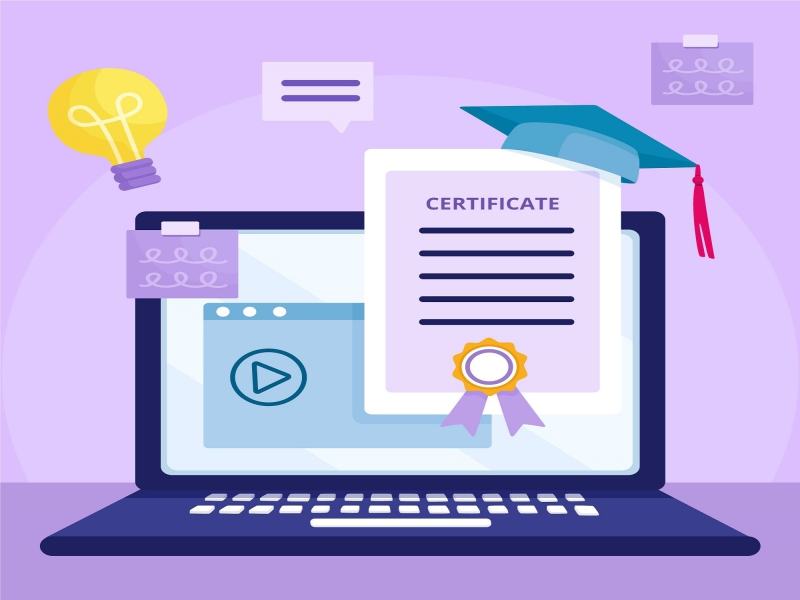The Project Management Professional (PMP) designation is the premier standard for project management practice. It is an acknowledgement of your skilful knowledge and abilities that you can present to potential companies or clients as proof of round-the-clock expertise in this domain. Having a PMP certification will enhance significantly those who are seeking job opportunities across countries on the way to reaching career success and high salaries in their jobs. The bottom line is that we shall tackle step by step how to get PMP certification here.
The Project Management Institute grant the PMP certification upon completion of certain requirements that must involve some aspects such as practical knowledge regarding projects, education on some courses from a project manager's standpoint, and taking exams among other factors depending on individual circumstances. Thus, you must first meet some educational and professional requirements hence being eligible.
Eligibility Criteria for one to even qualify to apply for the PMP certificate, students have to complete the conditions given below:
A secondary degree (high school diploma, associate's degree or its equivalence worldwide): 7500 hours of managing and directing projects related within project management project management and 35 hours of education regarding project management.
Four-year degree (Bachelor's degree or its equivalent globally): 5500 hours leading and directing projects plus 35 hours worth studying project materials.
PMP Exam conduct consists of two hundred multiple-choice questions which you must finish in four hours. Its scope is defined in terms of the following knowledge areas.
Project Integration Management
Project Scope Management
Project Time Management
Project Cost Management
Project Quality Management
Project Human Resource Management
Project Communication Management
Project Risk Management
Project Procurement Management
Project Stakeholder Management
Preparing for the PMP Exam needs commitment and a systematic method. Adhere to the following suggestions to do better:
Enroll in a PMP Exam Preparation Course: A number of respected training providers offer PMP exam preparation course programs. They cover everything including teaching, practice tests and books.
Phone through the PMBOK guide: The Project Management Body of Knowledge (PMBOK) is the recognized authority on project management. A thorough understanding of this book is important in grasping what is incorporated in the test.
Make a Study Plan: Design a study plan that includes your timetable for studies, topics to be discussed, and frequency of practice exams.
Join Study Groups: Studying with other PMP candidates not only enhances your learning but also gives opportunities for discussion and sharing knowledge.
Use Practice Exams: Practice exams indicate where you have gaps in your knowledge, and how much more you have to go before taking the actual test. as well as making you comfortable sitting for such tests.
As long as you meet the criteria for eligibility and get ready for the test, you can begin with the application and exam process:
Creating a PMI Member Account: You need to go to the PMI site and create a member account.
Submitting your PMP Application: Fill out a PMP application form application from information like education, experience or hours spent in project management.
Going Through Candidate Journey: PMI will assess your application and lead you through the candidate journey which includes document verification and scheduling of an exam.
Scheduling Your Test: Select a date that is appropriate for you along with the location that is most suitable for taking the PMP test.
To maintain your PMP qualification, you have to achieve 60 professional Development Units (PDUs) is every tri-annual cycle. PDUs can be obtained through a variety of activities, like participating in training courses, Instructing project management, doing volunteer work for PMI, publishing works and many more.
In addition to that, the subsequent advantages could be associated with acquiring PMp certification:
Broadened Career Opportunities: With the attainment of PMP certification, one portrays commitment towards project management and becomes more employable.
Higher Income: People who have obtained PMP certifications earn significantly more than those without any certification.
Worldwide Acceptance: PMP certification is known everywhere which bring foreign job possibilities along with it.
Increased Job Satisfaction: When compared to non-PMP certified colleagues, PMP holders frequently express higher degree of job satisfaction due to their experience and self-assurance level.
To effectively prepare for the PMP exam, it's essential to grasp its structure. The exam is divided into five process groups and ten knowledge areas. This framework provides a clear roadmap for your studies:
Process Group: These outline the Phases of a project.
Initiating
Planning
Executing
Monitoring and Controlling
Closing
Knowledge Areas: These encompass the specific project management competencies.
Project Integration Management
Project Scope Management
Project Time Management
Project Cost Management
Project Quality Management
Project Human Resource Management
Project Communication Management
Project Procurement Management
Project Stakeholder Management
Active Recall: This techniques involves asking questions or explaining concepts to others instead of just reading them passively.
Spaced Repetition: To enhance learning and retention, review information at gradually advancing intervals.
Mind Mapping: Enhanced comprehensions can be achieved by representing ideas and their connections through maps that are created from scratch by learner.
Simulate Exam Conditions: Build up stamina for examinations as well as improve your ability to handle time better by practicing taking exams under simulated exam circumstances at intervals which are timed.
The PMP aspirants often face difficulties while preparing for the exam. Below are some common challenges.
Time Management: You should have a sensible plan that will ensure no topic goes untouched in this area but give more attention to areas where there is higher portability of questions being asked in the test focus on managing time during mock tests too.
Remembering Formulas: Use flash cards or mnemonic devices for important formulas that need memorizing.
Information Overload: Concentrate on what matters most and avoid drowning under irrelevant details. Condence information in bite-sized chunks.
Acquiring a PMP certification represents a great achievement demanding total commitment, hard work and persistence. To increase your chances of success, follow through on the steps laid out in this guide as well as utilize other resources available. Set achievable targets, remain focused and acknowledge accomplishment along the way.